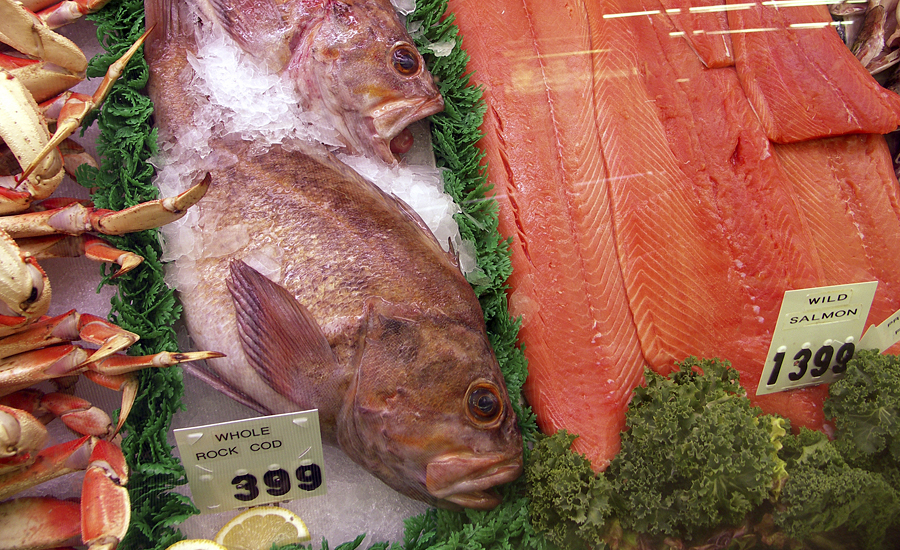A new survey by Blue Circle Foods, Washington, D.C., revealed that although shoppers are concerned about where their fish comes from and what is in it, price still influences purchasing decisions.
Data from the survey, conducted in September by Blue Circle Foods, shows overwhelming concern about contaminants, ocean pollution and overfishing. Shoppers indicated a strong preference for fish and seafood that is certified sustainable, however, cost still tops consumers’ priorities.
Blue Circle Foods sought the opinions of over 300 consumers. Nearly 78% of the respondents had purchased fish or seafood at least once in the previous month, with most believing that fish and other seafood are more sustainable than land-based meats such as poultry, beef and pork. The survey showed that most shoppers think fish and seafood are healthier than pork, beef and grains, and just as healthy as vegetables, with 84% believing fish and other seafood to be an important part of a balanced diet.
What concerns shoppers most?
- 90% of shoppers are concerned about contaminants like mercury in fish and seafood.
- 88% are concerned about ocean pollution.
- 86% are worried about the extinction of wild fish species.
- 83% are concerned about seafood mislabeling.
Price dominated the list of ranked attributes that affect purchasing decisions, but shoppers indicated that where seafood is sourced from and whether it contains contaminants such as mercury and PCBs are critical concerns.
On the other hand, the survey revealed positive attitudes toward seafood:
- 47% of shoppers offered their children seafood by age five.
- 82% of children had eaten fish or seafood by age 10 or earlier.
- 83% of shoppers agreed that their children enjoyed eating fish and other seafood.
- 72% of shoppers believe that their children are eating enough fish and seafood.
“This survey confirms consumers’ chief concerns, and provides us with a great opportunity, particularly during National Seafood Month, to help them make choices they can feel good about when buying fish,” says Nina Damato, supply chain manager.


